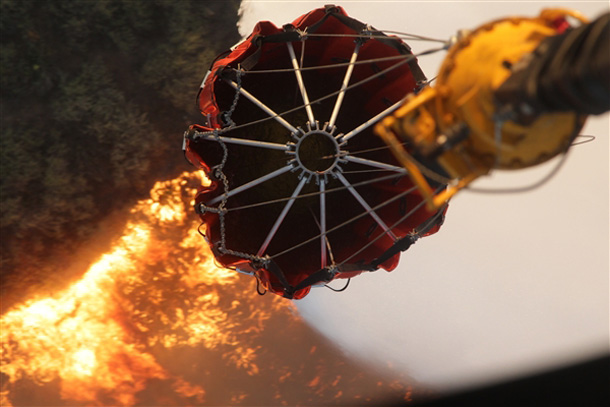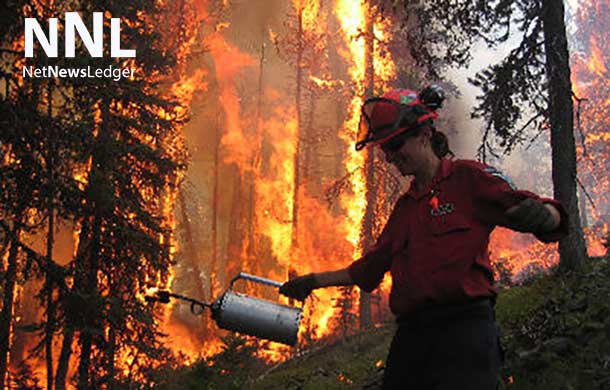THUNDER BAY – LIVING –The wildfire season in Northern Ontario has been far less severe than usual this summer. That is not however the case in British Columbia, or Alberta where hundreds of Ontario firefighters have been deployed to assist in fighting fires in those regions. “As we have seen already this year, wildfires are a real threat and pose significant danger to many communities in Western Canada,” said Bill Adams, Vice-President, Western and Pacific, from the Insurance Bureau of Canada. “Wildfires move fast, can change direction unexpectedly and are often difficult to contain. The unpredictable nature of such events highlights the threat to homeowners and why it is vital to minimize risk and be prepared.”
The dangers of wildfires might not seem all that critical in major urban centres, but as witnessed a few years ago in Australia, Slave Lake, and in California, wildfire can easily destroy homes and property as well as forests.

Severe weather is on the rise in Canada. According to an IBC-commissioned report by Dr. Gordon McBean – one of Canada’s foremost climatologists – the occurrence of wildfire activity is projected to increase, especially in Alberta and British Columbia. As noted in the report, it is possible that wildfires in British Columbia could increase by 50% or more in the period to 2050. These predictions make it even more critical to know how best to prepare your family and property for a wildfire.
IBC Top 10: Wildfire Safety and Prevention Tips
- Stay informed about the weather – weather forecasts are vital to being prepared for a potential wildfire;
- Pay attention to fire danger ratings – take note of and obey fire prohibitions and restrictions to know the likelihood of, and prevent wildfire igniting in your region. Check local government’s website for more information;
- Install and regularly check smoke detectors – remove dust, replace batteries when the clocks change in spring and fall, test regularly and replace at least every 10 years;
- Create an emergency preparedness plan for your family – develop a fire evacuation plan, practise executing that plan and stick to it in an emergency;
- Properly store flammable materials – store gasoline, solvents, waste or other materials that may ignite at least 10 metres away from your home;
- Remove dry leaves and debris – keep leaves, other dry materials and potentially flammable garbage away from the exterior of the house, especially if you have wood or vinyl siding.
- Manage space around your home – remove combustible material such as shrubs, trees and woodpiles within 10 metres of your home;
- Prepare your home – check that your home’s roof, its exterior walls and undersides of balconies are treated with flame-resistant materials;
- Prepare and update a home inventory – make a list of what you own, including the value of each item, take photos or video and update the list regularly;
- Assemble a disaster safety kit – prepare a basic kit of food, water and other necessities that will last at least 72 hours in an emergency.







